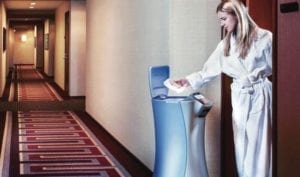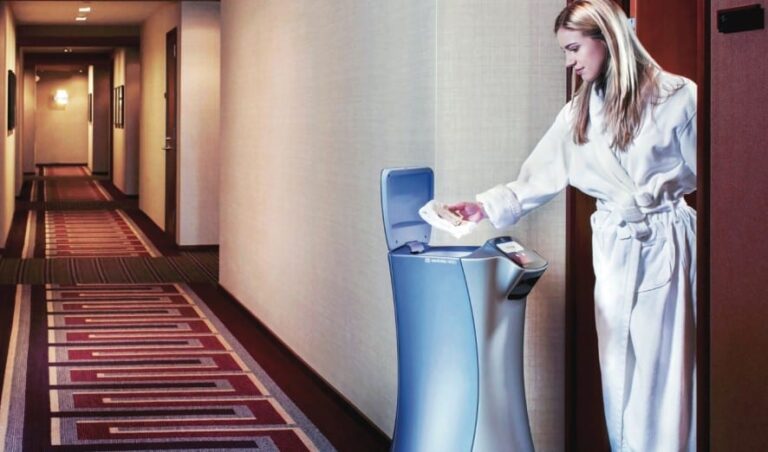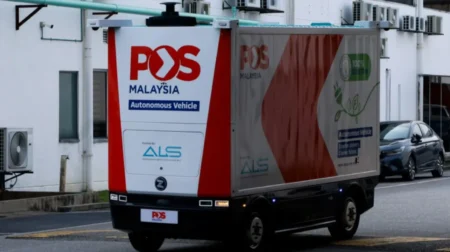ThyssenKrupp Elevator North America has launched a robotics interface platform to assist with robot delivery services throughout buildings.
Previously, robots could not operate independently and use elevators, limiting their use within a multi-storey building. However, ThyssenKrupp’s interface allows communication between the robot and the elevator, which enables robots to make floor selections and use elevators like a normal passenger.
By incorporating the elevator interface with delivery robots, building owners and managers can improve in-house logistics, increase productivity and maximise tenant experience.
“ThyssenKrupp Elevator is helping shape the smart cities of the future with its innovative technologies and solutions that make passenger movement safer and more efficient for everyone, including robots,” said Kevin Lavallee, CEO of ThyssenKrupp Elevator North America.
ThyssenKrupp has partnered with several robot manufacturers to install and implement the interface platform at hotels and hospitals across the USA to assist with housekeeping, room and luggage services; security patrolling and concierges; as well as aiding in pharmaceutical and package delivery.

The interface permits robots to select floors and call for an elevator wirelessly via WiFi or 4G LTE. Using machine vision, a robot can determine if an elevator has enough room or if it’s too full to accommodate the robot.
All elevator communication is performed wirelessly through ThyssenKrupp’s TAC family of controllers. The interface, which is only compatible with ThyssenKrupp software and hardware, can be installed in one day.
According to MarketsandMarkets, the delivery robot market is expected to grow from US$11.9m (£9.1m) in 2018 to US$34m (£26.2m) in 2024. Hotels are testing this technology to offset labour costs, increase revenue from room service as well as attract customers to increase occupancy and room rates.
Meanwhile, hospitals are utilising robots for deliveries to and from pharmacies, laboratories, blood banks, nurse stations, waiting rooms, patient rooms, administrative offices and gift shops. The robot can also lock and secure cargo such as pharmaceuticals, ensuring it gets to the right patient on time while also improving inventory management.
“Technology-savvy organisations in pursuit of improved operational efficiencies are embracing the virtually unlimited potential of this technology and how they can implement robots and the elevator interface into their day-to-day activities,” continued Lavallee.
The elevator interface platform marks ThyssenKrupp Elevator’s latest foray into the world of robotics. In 2017, the company announced the launch of a pilot project in which delivery robots would transport spare parts and other materials from the warehouse to elevator maintenance job sites.









